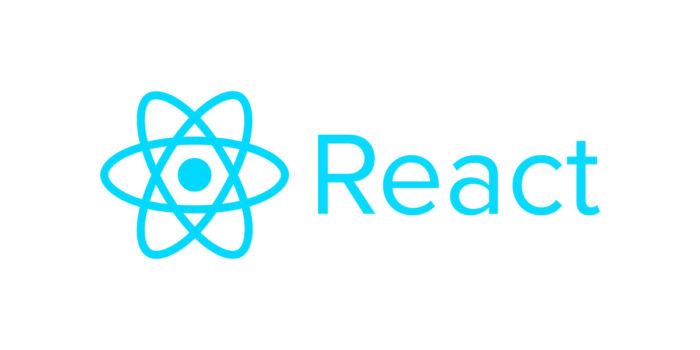- December 16, 2019 8:45 am
- by Aruthra
- December 16, 2019 8:45 am
- by Aruthra

Software frameworks are a great utility for developers as they provide them with a lot of useful libraries. These libraries contain reusable functionalities such as payment gateways, email integration and many more. Apart from that, having a framework will also give developers the added advantage of making your device more responsive. This responsiveness is the main reason why JavaScript frameworks are quite popular among web developers. If you are into developing a web app or website for your business, there will be a variety of choices for JavaScript frameworks. And it will be always a tough task to choose a JavaScript framework for web development. Let’s have a look at the top 5 JavaScript Frameworks for 2020.
If you are a hardcore programmer, you would have definitely heard of React. Built by Facebook with an aim to make their code more efficient. React is one of the popular libraries for developing dynamic UI for front end web apps. React can also be used with AJAX, Axios, and fetch API. Apart from that, it is compatible with an extensive number of additional libraries such as RefluxJS, MobX, Fluxy, Redux, etc. What is even more interesting with this library is that it permits you to place HTML code inside JavaScript and is also backed up by a solid community of experts from around the globe. Moreover, the framework is highly user-friendly and easy to learn for those who wish to learn.
 Here’s the list of React’s strengths:
Here’s the list of React’s strengths:
Also Read: Top 5 Reasons to Choose React.JS for Web Development
Angular is a powerful JavaScript framework from Google. You can use this framework to develop powerful Single Page Applications (SPA). Angular is similar to platforms such as Aurelia, React and Polymer. A recent survey of Stackoverflow estimates that over 40 percent of programmers prefer to use Angular to build user-interfaces. Angular is now one of the trending front end technology and will surely be the perfect fit for your front-end development needs. Instead of using plain JavaScript, Angular uses Typescript and CoffeeScript as its codebase. Angular is more an enterprise-level framework and is best suited for high-end projects that involve complex infrastructure. In terms of the job market, there are a lot more jobs for angular developers when compared to other frameworks. Apart from that, Angular plans major updates every six months, there is also a period of another six months before any major APIs are deprecated. You can blindly choose this framework for your front-end development needs if you are not comfortable to work with additional libraries as with React.
 Let’s have a look at the strengths of Angular:
Let’s have a look at the strengths of Angular:
Vue is a trending front-end framework that takes ideas from other modern JavaScript frameworks such as Angular and React. Nowadays, Vue is skyrocketing in popularity among developers mainly due to its simplicity and lightweight nature. The flip side of vue is that it is fairly new to the arena without any backing of major companies. Whereas, Angular and React are backed by Google and Facebook.If you are the kind of person that likes to save time by making things rather than writing a lot of boilerplate code. Then you’re going to definitely like a lot of aspects of Vue.js.

Pros of using the VueJS ecosystem:
Also Read: Top 5 Pros and Cons of the Vue.js Framework
Ember.js is an open-source JavaScript framework that was released in 2011. Ember is one of the best front-end frameworks that allow you to quickly build major client-side applications. Ember had released its latest version 3.14 this year with some new features and updates. The new version comes with lots of performance improvements and bug fixes. Popular websites such as Linkedin, Apple Music, Pardot, Netflix and many others use Ember.js as its front end framework. Although Ember lacks popularity among developers, it’s excellent for developing highly complex client-side apps.
 Here are the pros of Ember.js:
Here are the pros of Ember.js:
Based on MVC architecture, backbone.js is an uber-light JavaScript library that was created by Jeremy Ashkenas in 2010. Although it has been highly popular right after release, its popularity started to go down with the growth of other frameworks such as Angular, React, and Vue.js. It’s named as “Backbone” since it is more like a miniature MVC JavaScript library than a full-fledged framework as it provides tools that give the bare bones of a structure. Bitbucket, Airbnb, Foursquare, and many other major companies use this as their front-end technology. It is fairly easy to learn and can be used to build Single Page Applications rapidly. Backbone.js will be extremely helpful if your single page application requires few dependencies.

Pros of BackboneJS ecosystem:
We hope you got some basic insights about the top 5 JavaScript Frameworks for 2020. Vofox Solutions has a pool of experienced React, Angular, Vue.js, Ember.js, and Backbone.js who can help in web development.
Also Read: Why Choose Backbone JS For Web & App Development?
Guaranteed Response within One Business Day!
What is Infrastructure as Code (IaC)?

Front-End Performance in 2026: What Core Web Vitals Actually Mean for Your Site

What is FinOps?

Micro-Frontends: Breaking Down Monolithic React Applications
.png)
Zero-Trust Security Models for SaaS: What You Need to Know